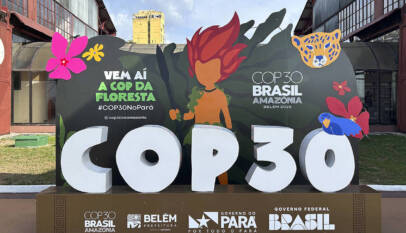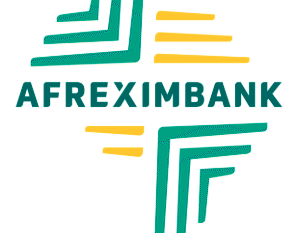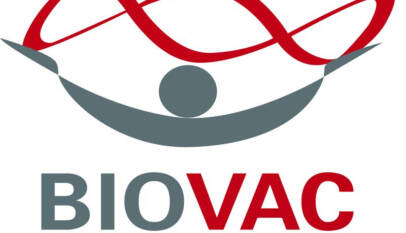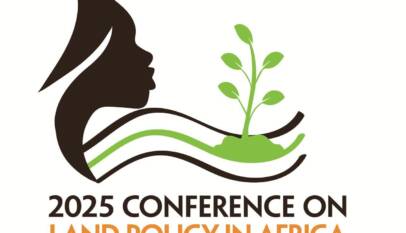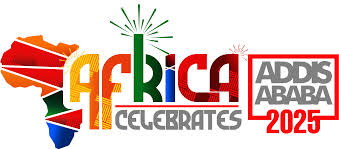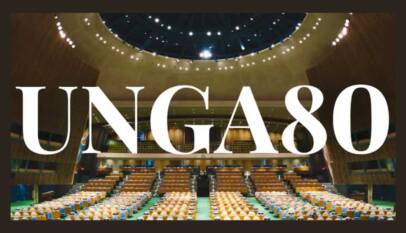OP-ED | West Africa on the Brink: The Rise of Emerging Conflicts and the Struggle for Regional Stability, By Eunice Kisiwaa Gyan
Eunice Kisiwaa Gyan posits that West Africa is at a crossroads: the region’s choice is between collective action and reform, or continued descent into fragmentation and insecurity.

In the past decade, West Africa has witnessed a troubling surge in violence and instability. The region, renowned for its democratic progress since the 1990s, now finds itself under the grip of multidimensional challenges, including terrorism, unconstitutional changes of government, post-electoral unrest, and transnational organized crime.
The combined effects of these crises threaten individual states and the collective peace and development trajectory of the Economic Community of West African States (ECOWAS).
The nature of violent conflicts in the region has undergone a radical transformation. While the 1990s were dominated by civil wars in Liberia, Sierra Leone, and Côte d’Ivoire, contemporary conflicts are more diffuse and complex. Terrorism, fueled by local grievances and transnational jihadist networks have taken center stage in countries like Mali, Burkina Faso, and Niger.
These conflicts are not just internal matters; they spill over borders, destabilizing neighboring states and undermining the effectiveness of regional cooperation mechanisms. The July 2023 coup in Niger illustrates how fragile the region’s political institutions have become. Despite ECOWAS’s strong condemnation and threats of military intervention, internal divisions and fear of broader war prevented any decisive action.
This new generation of conflicts is rooted in a set of structural weaknesses that have long plagued West African states. Political exclusion, poor governance, and rampant corruption have eroded public trust in state institutions. Many governments have failed to deliver basic services or equitable economic opportunities, particularly in marginalized Sahelian regions.
These areas, often home to ethnic minorities, suffer from chronic underdevelopment, lack of infrastructure, and limited state presence, making them breeding grounds for extremist ideologies and armed rebellion. The situation in Mali’s Azawad region and Nigeria’s North East provides stark evidence of how such neglect can escalate into protracted conflicts.
Moreover, young West Africans lack access to meaningful and decent employment, making them vulnerable to recruitment by terrorist groups, political vigilantes, and criminal syndicates. This is particularly troubling given the demographic composition of West Africa, where a large percentage of the population is under the age of 30. Without targeted interventions, this youth bulge could become a destabilizing force rather than a demographic dividend.
Porous borders, weak law enforcement, and an increase in transnational organized crime in the form of arms trafficking, drug smuggling, and human trafficking also exacerbate regional instability. The ECOWAS Protocol on the Free Movement of Persons, while intended to promote integration and economic exchange, has inadvertently facilitated the cross-border movement of insurgents and illicit goods. In this context, the line between criminal and terrorist activity becomes increasingly blurred, complicating national and regional responses.
Against this backdrop, ECOWAS, once celebrated for its decisive interventions in Liberia and Sierra Leone, now struggles to maintain its role as a stabilizing force. It appears overstretched, underfunded, and unable to respond to West Africa’s multifaceted challenges. Its responses to recent coups in Guinea, Mali, Burkina Faso, and Niger have been largely symbolic, often hurting civilians of these counties more than the targeted military juntas.
Part of the problem lies in the lack of internal cohesion within ECOWAS itself. Member States are often reluctant to support strong action against fellow Member States for fear of setting precedents or attracting retaliatory action. Moreover, regional responses are hampered by limited military capacity, inconsistent funding, and inadequate coordination with the African Union and United Nations.
In contrast, countries like Ghana stand out as a beacon of relative stability. Despite facing similar internal challenges, Ghana has managed to avoid the large-scale violence seen elsewhere in the region. This can be attributed to several factors, including initiatives fostering inclusivity, such as the One District One Factory (1D1F) and the Nation Builders Corps (NABCO), which aim to reduce unemployment and stimulate local economies.
Ghana’s National Framework for Preventing and Countering Violent Extremism, which came into being in 2019, promotes community resilience, inter-agency coordination, and proactive intelligence gathering. Additionally, Ghana has taken steps to secure its borders, deploying military units to the north and enhancing cooperation with neighboring states. Yet, Ghana’s relative peace should not breed complacency.
To address the region’s multidimensional challenges, West Africa needs an equally multifaceted and coordinated response. First, ECOWAS must revamp its early warning and response systems. The ECOWARN platform should be fully operationalized with real-time data collection and analysis, allowing for timely interventions.
Second, regional leaders must prioritize governance reform. This includes strengthening institutions, promoting transparency, and ensuring that political processes are inclusive and credible. The manipulation of constitutions to extend presidential terms, as seen in Guinea, must be decisively rejected.
Third, regional development strategies must be aligned with security objectives. This means targeted investments in education, healthcare, and infrastructure in conflict-prone areas, just as job creation for youth, should be a central pillar of the response, not an afterthought. Governments should also enhance local governance and decentralization, giving communities a greater stake in their development.
Finally, international partners also have a role to play. The current donor fatigue must be reversed by reframing the Sahel crisis as a global security concern. Investments should focus not only on military action but also on building institutional and civic capacity to deal with challenges. Civil society groups, women’s groups, and youth organizations must be empowered to actively participate in peacebuilding efforts.
Eunice Kisiwaa Gyan is an expert in Youth, Peace, and Security (YPS), experienced in advancing youth engagement, conflict prevention, and peacebuilding in West Africa. The views expressed in this op-ed are those of the author and do not necessarily reflect African Newspage’s editorial policy.




